
Top 7 winter drinks from around the world
Winter is the perfect time to curl up in a warm blanket and enjoy drinks that bring coziness and holiday cheer. Here are seven winter drinks that are perfect for cold days




10th place - Hong Kong ($2,750.64)
Hong Kong is not only the largest financial center in Asia, but also one of the most developed regions in the world. The income tax rate does not exceed 15-17% here.
Every year, the city attracts foreign workers and entrepreneurs with its low tax regime and simple business management. The most in-demand specialists are teachers of the English language.
The cost of living in Hong Kong is impressive, but the minimum wage here is at least $1,200, while it is even higher in China. The weekly working hours are 50 hours.

9th place - United States ($2,835.07)
The average wage in the USA reduces after payment of the differentiated taxes by 30-40%. Besides, they are coupled with the health insurance costs and the relatively high prices of goods and services.
The unskilled service personnel's minimum wage rate for a 44-hour working week is about $8 per hour.
Teachers, engineers, medical personnel, and police officers can boast the highest wages. In addition, the demand for IT specialists is stable high.
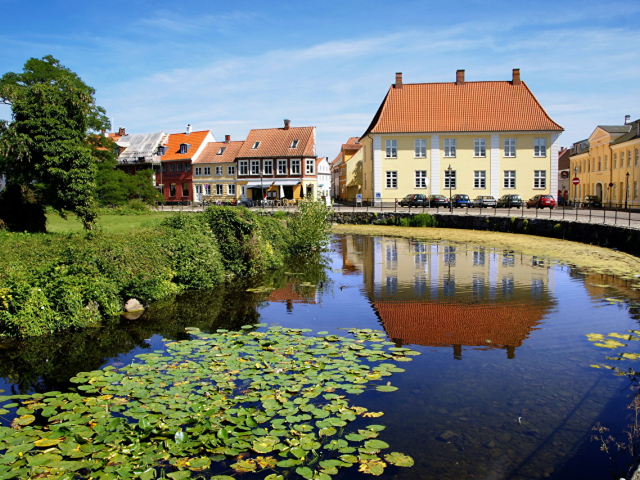
8th place - Denmark ($3,068.11)
Wealthy Denmark has been one of the top 5 countries in Europe in terms of wage rates for many years. This Scandinavian state does not have any problems with employment; there are very few unemployed persons here.
A decent standard of living, a developed economy, and free health care serve as excuses for high tax rates. The minimum wage of €44 per hour in Denmark is the highest in the European Union.
The most highly paid professions in the country are dentists and experts on the actuarial calculations in the insurance and investment services. The payment for unskilled labor is much lower.

7th place - Singapore ($3,148.24)
The laws of Singapore, one of the most expensive cities in the world, are very loyal to foreigners, so many prominent professionals, businessmen, and artists from other developed regions move here.
This is facilitated by an extremely favorable investment climate, "soft" taxation, a high level of free competition, steady increase in the country's welfare, and, of course, decent wages with a full social package.
The residents of Singapore are very hardworking: they work 12 hours a day, 5 days a week.
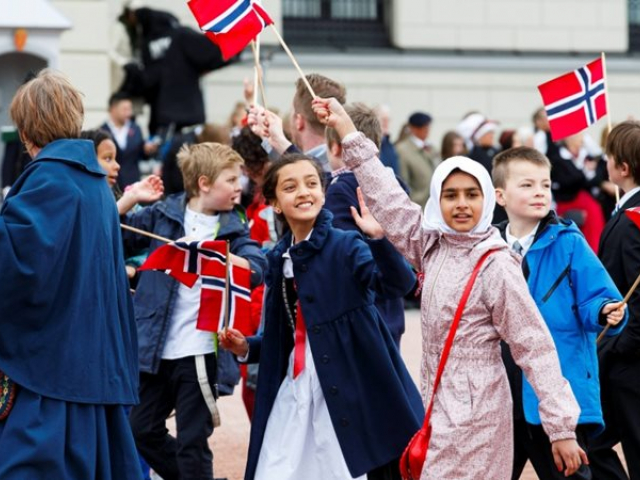
6th place - Norway ($3,176.34)
Even given the fact that the average Norwegian loses almost half of his income on taxes, he still receives about $3,000. This is well enough for a 30-hour work week.
Immigrants are entitled to such a salary if they are highly qualified and experienced specialists. This efficiently distinguishes the country from many other European countries. In addition, health care and higher education are absolutely free here.
The Norwegian government does not spare money for medical workers, IT specialists, and programmers. Employment in the export of oil and salmon is increasing.
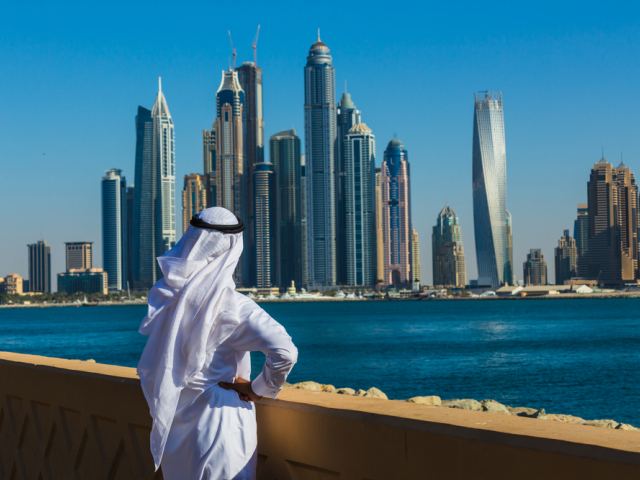
5th place - UAE ($3,182.48)
Well-being in the United Arab Emirates has been improving over the past few decades, and now this South African country is one of the most economically developed, not only in this region, but throughout the world.
However, only indigenous people receive high wages, while the wage rate for foreigners depends on their skill levels. The working week lasts 48 hours.
In the UAE, there in no such thing as minimum fixed salary, since wages here depend directly on an employer. Nevertheless, even the lowest local salaries exceed the average in many EU countries, and the average earnings are increasing every year.

4th place - Australia ($3,306.13)
Another country where half of the funds earned is devoted to the payment of taxes is Australia.
The agricultural, mining, oil and gas industries, as well as the service sector are considered to be advanced. Doctors and programmers from Canberra make good money; the income of the islanders from Tasmania is much lower.
Australians supply their own food and receive decent wages for a 35-hour working week: the minimum hourly rate accounts for $20 and is the highest in the world. The minimum wage is also high - $2,400-$2,600.
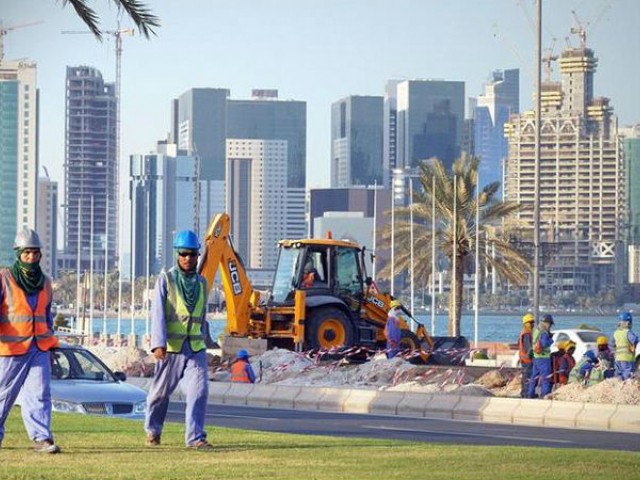
3rd place - Qatar ($3,372.63)
Wages in this Middle Eastern state allow almost every resident to live comfortably. However, this desert is a fairy tale only for the indigenous people of the country.
Migrants, who are now busy building stadiums, upgrading the transport system in view of the upcoming World Cup in 2022, receive much less. In addition, this is one of the most expensive countries in the East.
The weekly working hours, as in many Arab countries, are 48 hours.

2nd place - Luxembourg ($3,565)
Luxembourg is one of the richest countries in Europe with the highest standard of living, where high taxation is more than offset by low levels of crime and unemployment, as well as the highest wages in the world. Thus, the minimum official salary is $1,921.
In Luxembourg, thanks to favorable conditions and offshore zone, there are several EU organizations, a lot of investment funds, and banks.
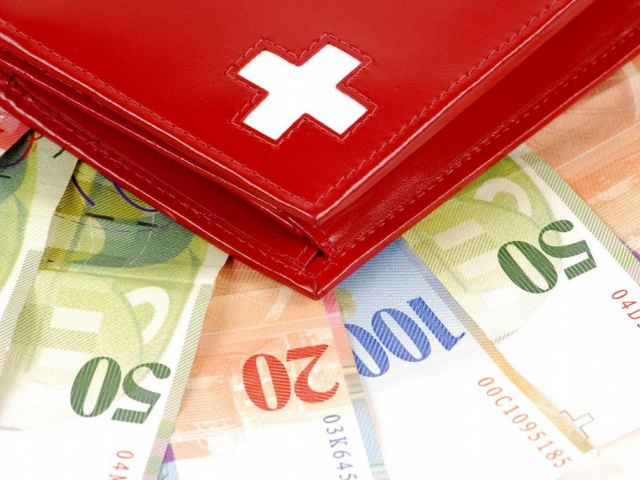
1st place - Switzerland ($5,426.27)
Switzerland is known for the lowest level of social stratification in the world: the salary of the highest-paid specialist should not exceed the payment of an ordinary employee more than 12 times.
Switzerland has very attractive conditions to start and develop a business and the second largest per capita income after Luxembourg. Here, the minimum wage is €3,500.

Winter is the perfect time to curl up in a warm blanket and enjoy drinks that bring coziness and holiday cheer. Here are seven winter drinks that are perfect for cold days

Despite the widespread belief that ultra-wealthy individuals are leaving big cities in search of privacy, most still prefer to live in bustling metropolises, according to the latest billionaire census conducted by Altrata. Let's explore which cities today have the largest concentration of people with a fortune exceeding $1 billion

The European Union currently includes 27 member states, but the interest in joining continues to grow, with an increasing number of countries aspiring to become part of the bloc. This article highlights the countries advancing toward European integration and examines where they stand on this path